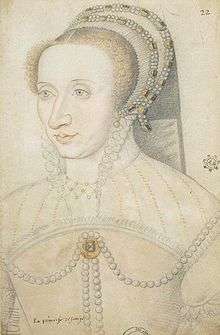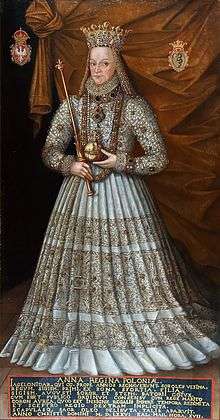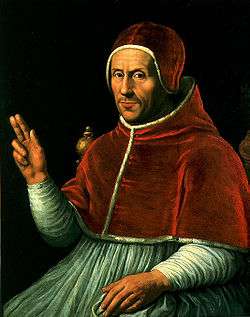1523
| Millennium: | 2nd millennium |
|---|---|
| Centuries: | 15th century · 16th century · 17th century |
| Decades: | 1490s · 1500s · 1510s · 1520s · 1530s · 1540s · 1550s |
| Years: | 1520 · 1521 · 1522 · 1523 · 1524 · 1525 · 1526 |
| 1523 by topic |
|---|
| Arts and science |
| Lists of leaders |
|
| Birth and death categories |
|
| Establishments and disestablishments categories |
|
| Works category |
|
| Gregorian calendar | 1523 MDXXIII |
| Ab urbe condita | 2276 |
| Armenian calendar | 972 ԹՎ ՋՀԲ |
| Assyrian calendar | 6273 |
| Bengali calendar | 930 |
| Berber calendar | 2473 |
| English Regnal year | 14 Hen. 8 – 15 Hen. 8 |
| Buddhist calendar | 2067 |
| Burmese calendar | 885 |
| Byzantine calendar | 7031–7032 |
| Chinese calendar | 壬午年 (Water Horse) 4219 or 4159 — to — 癸未年 (Water Goat) 4220 or 4160 |
| Coptic calendar | 1239–1240 |
| Discordian calendar | 2689 |
| Ethiopian calendar | 1515–1516 |
| Hebrew calendar | 5283–5284 |
| Hindu calendars | |
| - Vikram Samvat | 1579–1580 |
| - Shaka Samvat | 1444–1445 |
| - Kali Yuga | 4623–4624 |
| Holocene calendar | 11523 |
| Igbo calendar | 523–524 |
| Iranian calendar | 901–902 |
| Islamic calendar | 929–930 |
| Japanese calendar | Daiei 3 (大永3年) |
| Javanese calendar | 1440–1442 |
| Julian calendar | 1523 MDXXIII |
| Korean calendar | 3856 |
| Minguo calendar | 389 before ROC 民前389年 |
| Nanakshahi calendar | 55 |
| Thai solar calendar | 2065–2066 |
| Wikimedia Commons has media related to 1523. |
Year 1523 (MDXXIII) was a common year starting on Thursday (link will display the full calendar) of the Julian calendar.
Events
January–June
- April – Martin Luther helps Katharina von Bora, his eventual wife, escape from the Nimbschen convent by placing her and 12 other nuns in herring barrels.
- May – The Ningbo Incident: Two rival trade delegations from Japan feud in the Chinese city of Ningbo, resulting in the pillage and plunder of the city.
- June 6 – Gustav Vasa is elected king of Sweden, finally establishing its full independence of Sweden from Denmark, marking the end of the Kalmar Union.
July–December
- July 1 – Johann Esch and Heinrich Voes became the first Flemish Lutheran martyrs, burned at the stake by Roman Catholic authorities in Brussels.
- November 19 – Pope Clement VII succeeds Pope Adrian VI as the 219th pope.
Date unknown
- The Ming Dynasty Chinese navy captures two Western ships with Portuguese breech–loading culverins aboard, which the Chinese call a fo–lang–ji (Frankish culverin). According to the Ming Shi, these cannons are soon presented to the Jiajing Emperor by Wang Hong, and their design is copied in 1529. [1]
- Martin Luther's translation of the Pentateuch into German (Das allte Testament Deutsch) is published.
- Wijerd Jelckama, a Frisian warlord and military commander is executed in Leeuwarden. His death ends the successful Frisian rebellion fought by the Arumer Black Heap.
- The Swabian League destroyed 23 robber baron castles in the Franconian War.
Births

Margaret of France, Duchess of Berry born on June 5

Anna Jagiellon born on October 18
- January 29 – Enea Vico, Italian engraver (d. 1567)
- February 1 – Francesco Abbondio Castiglioni, Roman Catholic cardinal (d. 1568)
- February 13 – Valentin Naboth, German astronomer and mathematician (d. 1593)
- February 20 – Jan Blahoslav, Czech writer (d. 1571)
- March 17 – Giovanni Francesco Commendone, Catholic cardinal (d. 1584)
- March 21 – Kaspar Eberhard, German theologian (d. 1575)
- April 5 – Blaise de Vigenère, French diplomat and cryptographer (d. 1596)
- April 21 – Marco Antonio Bragadin (d. 1571)
- June 5 – Margaret of France, Duchess of Berry (d. 1574)
- July 4 – Pier Francesco Orsini, Italian condottiero and art patron (d. 1583)
- July 18 – George II of Brieg, Duke of Brieg (1547–1586) (d. 1586)
- September 21 – Sancho d'Avila, Spanish General (d. 1583)
- September 22 – Charles, Cardinal de Bourbon, French church leader and pretender to the throne (d. 1590)
- October 10 – Ludwig Rabus, German martyrologist (d. 1592)
- October 11 – Eleonore of Fürstenberg, Wife of Philip IV, Count of Hanau-Lichtenberg (d. 1544)
- October 18 – Anna Jagiellon, daughter of Sigismund I of Poland (d. 1596)
- date unknown
- Sancho d'Avila, Spanish military leader (d. 1583)
- Gabriele Falloppio, Italian anatomist and physician (d. 1562)
- Martín Cortés, Spanish conquistador (d. 1589)
- Henry Brandon, Earl of Lincoln, nephew of King Henry VIII, son of Charles Brandon, Duke of Suffolk
- Francisco Foreiro, Portuguese Dominican theologian and biblist (d. 1581)
- Gaspara Stampa, Italian poet (d. 1554)
- probable – Crispin van den Broeck, Flemish painter (d. 1591)
- possible – Catherine Howard, Fifth Queen of Henry VIII of England, (born in between 1518 and 1524; d. 1542)
Deaths
- February 4 – Thomas Ruthall, Chancellor of the University of Cambridge
- May 7 – Franz von Sickingen, German knight (b. 1481)
- May 23 – Ashikaga Yoshitane, Japanese shogun (b. 1466)
- May 24 – Henry Marney, 1st Baron Marney, English politician (b. 1447)
- July 1 – Johann Esch and Heinrich Voes, Flemish Lutheran martyrs
- August 13 – Gerard David, Flemish artist (b. c. 1455)
- August 29 – Ulrich von Hutten, Lutheran reformer (b. 1488)
- September 14 – Pope Adrian VI (b. 1459)
- October – William Cornysh, English composer (b. 1465)
- December 12 – Pietro Perugino, Italian painter (b. 1446)
- date unknown
- Wijerd Jelckama, Frisian rebel and warlord (b. 1490)
- Alessandro Alessandri, Italian jurist (b. 1461)
- Bartolomeo Montagna, Italian painter (b. 1450)
- Abi Ahmet Celebi, chief physician of the Ottoman Empire, (b. 1436)
References
- ↑ China: A History, London: HarperPress, 2008, ISBN 9780007221776, 0007221770,
The 'breech-loading culverins presented at the Ming court in 1522' were a gift from the Portuguese; and Portuguese arquebuses were acquired in the 1540s by the Japanese, who copied and greatly improved them.
This article is issued from Wikipedia - version of the 11/14/2016. The text is available under the Creative Commons Attribution/Share Alike but additional terms may apply for the media files.


